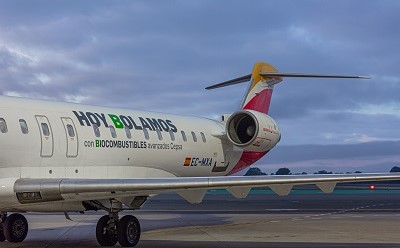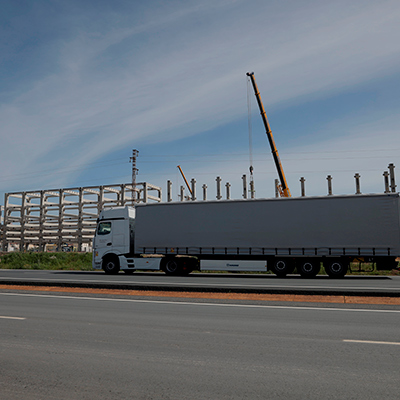- This airport, ranked fourth in Spain by passenger volume, joins the Madrid, Barcelona, Palma de Mallorca, and Seville airports, where the company has been selling sustainable aviation fuel (SAF) since July
- Cepsa produces this second-generation biofuel at its La Rábida Energy Park (Huelva) from organic waste and used cooking oils
- Biofuels can reduce CO2 emissions by up to 90% compared to traditional fuels
- This new milestone is part of Cepsa's commitment to sustainable aviation and its ambition to lead in the production of SAF, with an annual production capacity of 800,000 tonnes by 2030
The company, one of the main manufacturers and suppliers of aviation fuels in the Spanish market, is thereby furthering its commitment to the decarbonization of air transport. Just a year ago, Cepsa was a pioneer in supplying SAF to more than 200 flights at Seville Airport. It has also reached collaboration agreements with the main airlines operating in Spain to jointly promote sustainability in the sector. Specifically, the energy company has partnered with Iberia, Iberia Express, Air Europa, Vueling, Air Nostrum, Binter, TUI, Wizz Air and Volotea, among others.
Álvaro Macarro, Director of Sustainable Aviation at Cepsa, said: "We continue to take new steps to make aviation more sustainable and help airlines advance their decarbonization goals. Cepsa is spearheading today the promotion of energies that will be crucial in the coming years and that can turn Spain into the largest European hub for SAF. After becoming the first company to continuously offer this renewable fuel to our airline customers at the main Spanish airports, we are now adding Malaga, a key point for national and international connections".
Ensuring the supply of SAF
The energy company produces this renewable fuel at its La Rábida Energy Park in Huelva from organic waste, such as used cooking oils or agricultural waste, among others. Thus, in addition to being able to reduce emissions by up to 90% compared to conventional kerosene, the production of second-generation biofuels also promotes the circular economy, as they are produced from waste that would otherwise end up in landfills.
To guarantee the supply of SAF to its customers, Cepsa will develop the largest second-generation biofuels plant in southern Europe, together with Bio-Oils, through an investment of up to 1 billion euros. This facility, which will be commissioned in 2026 in Palos de la Frontera (Huelva), will have a flexible production capacity of 500,000 tons of SAF and renewable diesel.
As part of its Positive Motion strategy, Cepsa, with the aim of promoting the decarbonization of aviation, hopes to lead the production of SAF in Spain and Portugal, with an annual production capacity of 800,000 tons in 2030, an amount of sustainable fuel sufficient to fly over the planet 2,000 times.




